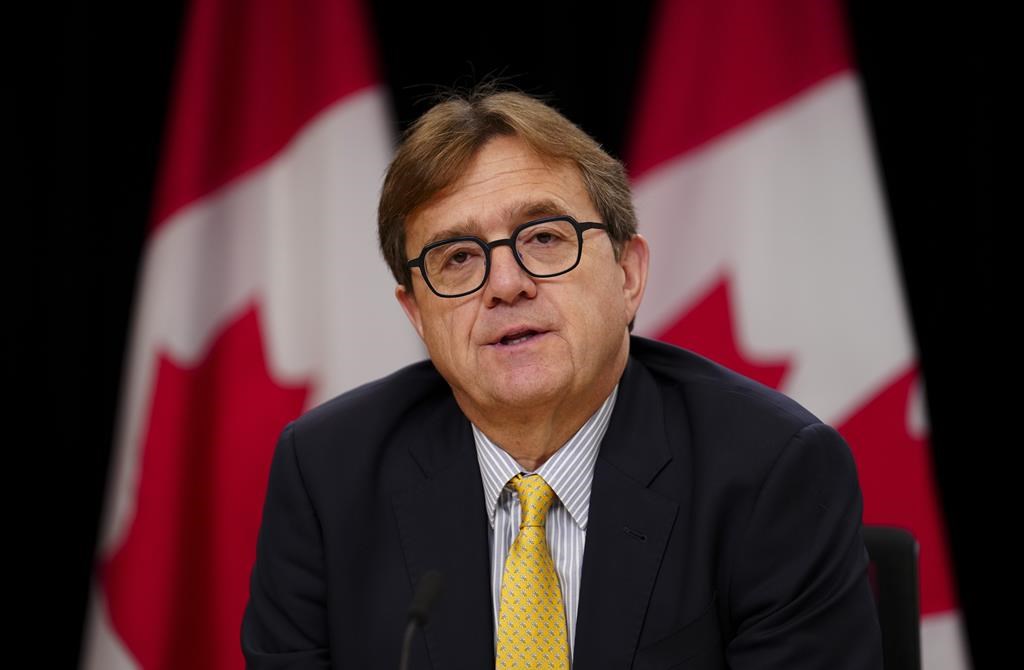Canada's energy minister says an Alberta power company has pulled out of a planned project after an investigation found another project received public subsidies that covered more than three-quarters of the cost. Defends carbon capture and storage technology as effective and affordable.
“Carbon capture and sequestration technology is advancing and, like all other technologies that go through cycles, it's actually becoming cheaper over time,” Jonathan Wilkinson said on Tuesday.
“To those who say the technology itself is unproven, I would say that's not true. The technology, the underlying technology, has been around for a long time. It's a matter of scale, it's a matter of cost. And both of those things are actually happening.”
Carbon capture, utilization and storage, also known as CCUS, is a system that captures carbon emissions at the source and returns them underground. These are expected to play a key role in Canada's climate change plan, which has failed to meet its goals and continues to produce oil and gas, which underpins a significant portion of Canada's economy.
The Climate Change Plan estimates that carbon capture will reduce emissions by up to 16 million tonnes by 2030, which is more than the additional emissions reductions needed to meet the next 2030 target. This corresponds to approximately 5%.
The International Energy Agency estimates that CCUS will need to account for 15 percent of global emissions reductions by 2050 to reach net zero, where all emissions are eliminated or captured.
Canada's climate change plan includes “all credible pathways to achieving net zero by 2050, including all 1.5°C pathways developed by the United Nations Intergovernmental Panel on Climate Change and the (International Energy Agency).” “Increase the use of CCUS capabilities in combination.”
But in Canada, its increased use is proving complicated.
As of 2022, Canada has captured and stored a total of 7.2 million tonnes of carbon dioxide since 2017, the majority of which is located in Scotford, north of Edmonton, according to the latest national emissions report released last week. Upgrader located at Shell Canada's Quest CCS facility.
Shell funded about three-quarters of Quest's $1.1 billion in capital and operating costs with state and federal grants, and the rest through the sale of carbon credits generated by capturing carbon emissions. A Greenpeace investigation released this week found that the company had received permission from Alberta to sell twice as many credits as it actually earned in order to make ends meet.
Instead of generating $203 million by selling credits based on the amount of carbon actually captured, Shell generated $406 million, according to a Greenpeace investigation.
The study was announced just days after Edmonton power producer Capital Power scrapped a $2.4 billion carbon capture system planned for the Genesee power plant, saying the economics didn't work out. The company said in its May 1 quarterly earnings report that while carbon capture is “technically viable,” the company does not believe the project is “economically viable.” announced.
The decision came despite the Alberta government promising to cover up to 12 per cent of the cost and the federal government half through new tax credits.
Further certainty was being tested on carbon contract differences under the new Canada Growth Fund. Such agreements help provide confidence that carbon markets are robust to credits generated by technologies such as carbon capture and storage.
Uncertainty about whether a federal carbon price will be maintained by future governments undermines confidence that such a market exists or that a sufficiently high price for credits will be achieved. Investments only make sense if companies can gain certainty about the price at which they can sell credits.
Capital Power has not yet negotiated a contract for difference.
Wilkinson said the cancellation should not be seen as a signal against carbon capture.
“There are a variety of paths that could lead to Capital Power actually meeting the requirements of the clean fuel and clean power regulations that eventually come into effect,” he said.
“They made a business decision that they could actually meet these requirements in a different way. I believe there will be an approach.”
The Alberta government blamed Capital Power's decision on the fact that Ottawa has not yet implemented a carbon capture tax credit.
The credit was first promised three years ago but took several years to develop and was included in legislation to implement the Autumn Economic Statement in November.
The bill has not yet been passed. It will be discussed again this week.



